Super-strength beer and cider are losing their space on the shelf as retailers sign up to local authority schemes to stop selling the products, which have been blamed for alcohol-related health problems and anti-social behaviour. So what has been the overall impact to date?
Good store owners know that retailing isn’t just about shifting stock - the job comes with the need to strike a balance between responsibility to your community and your own profitability. But what happens when the pressure mounts to stop selling certain products, potentially jeopardising sales and customers’ wishes? It’s a situation more and more of you are finding yourselves in across the country, with local authorities having identified super-strength beers and ciders as a major cause of alcohol-related illness and street crime.
In conjunction with the police and other public bodies, councils such as Portsmouth, Ipswich and Nottingham are leading the way in a crackdown on super-strength beers and ciders, although they are quick to point out that retailer engagement is voluntary. About 40 councils are implementing such schemes, with a further 60-odd who are looking into doing so, according to the Association of Convenience Stores. But what is the impact of these campaigns on retailers?
Portsmouth introduced a voluntary ‘Reducing the strength’ initiative in October 2013 in a bid to tackle a deep-rooted social issue. The city has one of the highest rates of alcohol-related hospital admissions in the South East, costing the NHS, criminal justice service and employers an estimated £74m annually - of which a large proportion is attributed to the availability of super-strength alcohol. To illustrate the argument, the authorities have a sobering statistic at hand: one 3ltr bottle of Frosty Jack’s holds 22.5 units of alcohol, more than a man’s weekly recommended allowance. But when supermarkets such as Iceland are selling 6ltr of Frosty Jack’s for £7 online, it isn’t hard to see the appeal of such products.
The medical view

Portsmouth’s Queen Alexandra hospital spent £10m on 4,000 regular visitors, so-called frequent flyers, in 2010, of whom 20% were drinking super-strength products. According to alcohol nurse specialist Donna Burman, some of these are drinking 3-4ltrs per day of Frosty Jack’s, Tennent’s or Special Brew. She says there were 14,000 alcohol-related visits to A&E alone that year, which is under-reported because a physical injury isn’t classified as an alcohol problem.
“The ‘Reducing the strength’ scheme can only help, even if it reduces units by half,” she adds. “Those extra units are so damaging. There are about 60 diseases alcohol can cause, and it’s even more damaging to elderly people because they have no idea about alcohol consumption.”
This, of course, is also why not every independent retailer wants to give up its super-strength stock. “Retailers are terrified of the big supermarkets,” says Rob Anderson Weaver, Portsmouth’s community safety project officer. “But the only way you’re going to compete is by being the local shop and competing on approachability and safety. Anything that impacts that negatively will drive away that advantage.”
In any case, most of the multiples have signed up to the project, which specifies removing any beer or cider of 6.5% abv and over. Of the 150 off licence premises in the city, about one-third have become superstrength free since October, while “another 30 are working with us”, he says.
Of the supermarkets, only Iceland is “not interested”, while in contrast Tesco has removed super-strength products from all nine of its stores, and Lidl agreed to remove its own-brand 7.5% ciders when it was provided with evidence of the scheme’s success. “Tesco said that half of its super-strength stock was stolen anyway,” Anderson Weaver adds. A number of independent retailers, both symbol and unaffiliated, have also signed up, to generally positive results.
One such independent retailer, Rainbow News (Premier) in Albert Road, opted to sign up after the owner’s pregnant wife was intimidated by a drunk shopper buying a super-strength product. Police Constable Pete Rackham, of the local violent crime reduction and licensing team, works alongside Anderson Weaver in rolling out the scheme. He says: “We could have fined the owner £1,000 for serving this person. But that’s not our approach. Instead, I said ‘this won’t happen if you stop selling high-abv products’. So he stopped and hasn’t had a problem since. The key is not to be heavy-handed, but we have to be honest with them. If someone behaving anti-socially keeps going back to the store, we have to take action.”
At Rainbow News, the woman in question, Tamil Selvi Raju, believes the decision to join the scheme was the right one. “Before, they weren’t proper customers; they’d take one can of super-strength and go and sit outside. Now we get 20 more customers a week who didn’t come in before,” she says. “I’m very happy with the results. We’re more of a community shop and can communicate with customers now. Portsmouth would be a peaceful place if everyone stopped selling super-strength.”
Down the road, Panchalingham Arannam used to sell 15 lines of super-strength products from his 2,000sq ft New Kwiki Mart store, but stopped doing so in November. “All crime has stopped,” he says. “There’s no shoplifting or intimidating behaviour, and the staff feel free now. There’s now a different crowd shopping here who were too scared to come in before.”
The statistics back up the retailers’ experiences. Violent crimes have reduced by 50% in Albert Road, according to Anderson Weaver, while in nearby Cosham High Street crime-related incidents related to super-strength alcohol have all but disappeared. “In one year there were 257 incidents, of which 154 were directly linked to super-strength alcohol. Most off licences have now stopped selling it,” he says.
Constable Rackham adds: “We need to pinpoint where people are buying alcohol from so we can provide retailers with information. We want to base everything on fact.”
In central London, Sunstar Group stopped selling super-strength beer and cider (5.5%-plus abv) from its Waterloo store in mid-2012. The store, on the periphery of Waterloo Station, used to be a lightning rod for antisocial behaviour, but no more. “Before, we had broken glass every fortnight and staff regularly experienced daytime abuse. People would be lying on the street outside the shop, but it’s all completely stopped,” says operations manager Syed Husain. “Footfall has increased, too, because people are more comfortable now.”
Crucially, creating the new trouble-free store has not come at a price. “Sales haven’t been affected at all. At first I had to convince the managers, who were concerned it would impact on sales, but then they saw the benefits,” he says. Sunstar has had similar successes at its other stores, and Lambeth Council has used the Waterloo store as an example to other retailers.
Back in Portsmouth, Spar retailer Jeremy Van Laun has actually seen alcohol sales rise since he stopped selling super-strength products. “I can’t really put my finger on it, but selling these products affects everyone in the area so I was pleased to stop selling them, and I’ve had no trouble since,” he says.
New Kwiki Mart owner Panchalingham, however, has taken a 5% sales hit, but he says the price has been worth paying. “Retailers have asked me why I did it. I say ‘we’re all here to make money but we want to do it peacefully’. Prior to the scheme people would come and buy a can and steal another at the same time. It attracted troublemakers.”
In Ipswich, which was one of the first areas to introduce a ‘Reducing the strength’ campaign in 2012, just over 100 (or 71%) of the 142 off-licensed stores are now signed up. A spokeswoman for Suffolk Police says reports of street drinking in one area of Ipswich, Austin Street, dropped by 73% after local stores went super-strength free. Campaign partner East of England Co-operative, which has now rolled out the initiative in all its stores in Suffolk, Essex and Norfolk, has also recorded impressive results. Trials in Ipswich showed that the volume of alcohol sales remained unchanged, but the number of alcohol units dropped by 113,000 over a seven-month period. The absence of superstrength products has also had “no significant impact” on turnover, the group says.
“Our partnership work has shown how removing the problem at source can help reduce anti-social behaviour in the local areas where we trade,” says Roger Grosvenor, executive officer retail, East of England Co-operative. In Nottingham, where retailers are encouraged not to stock products over 5.6% abv, the city council claims that 90% have signed up, with “pockets” of street drinking remaining around the other 10%.
The other side
So what about the independent retailers who aren’t playing ball? In Portsmouth, a Best-One retailer refuses to give up the three lines of super-strength he stocks. “I have two customers who buy these products, and they’re good customers; they spend about £20 a week here,” he says. “I’ve discussed removing the products but they don’t want me to. And anyway, I’m not a doctor, it’s their lives.” Another retailer has a stream of customers buying super-strength from the nearby Salvation Army ‘halfway house’, and doesn’t want to take a sales hit.
Norfolk retailer Nigel Dowdney says targeting super-strength is a specific solution to a specific problem. “It’s just part of the problem, there isn’t a blanket cure. It’s like saying there’s lots of dangerous drugs in the country so let’s ban one,” he says. “We don’t have a problem with street drinking in our area so taking super-strength products off the shelves won’t do anything. And it won’t do anything to stop violence on a Saturday night. Norwich City Council is good at jumping on bandwagons - they said they wanted to ban super-strength to tackle punch-ups on a Saturday evening, but it’s got nothing to do with that in the nightclubs.”
Anderson Weaver says ‘Reducing the strength’ is the right solution for Portsmouth. “Geographically, Portsmouth is an incredibly small and densely populated city so it could be argued the damage caused by both street drinking and the health issues associated with super-strength alcohol affect it as a whole,” he asserts.
“Campaigns such as ‘Reducing the strength’ are an appropriate measure to facilitate an actual change locally where many other treatment-based initiatives are already in place.”
From his experience in Norfolk, Nigel believes that drinking culture is changing for the better - partly due to more affordable quality products and better alcohol ranges. “We used to sell gallons of Tennent’s and Special Brew - about 15-20% of our alcohol sales - but now it has reduced to a case a week (about 1%). Normal strength beer is much cheaper - the range is bigger now, and people are much more adventurous in general. Twenty years ago people wouldn’t have dreamed of buying a French red. People have more sophisticated tastes now and are drinking less - the days of downing a couple of cans of Special Brew in a fuzz in front of the telly are over.”
Legal question marks
Despite the involvement of local law enforcers in ‘Reducing the strength’ schemes, there are still “serious questions over legal issues”, says Association of Convenience Stores (ACS) public affairs director Shane Brennan. “There are big questions over whether suppliers could take action, and I’m not sure whether Portsmouth and other areas have addressed these issues,” he adds. “We’ll never know for sure unless it’s tested in court, but in practice no retailers have been sued. It’s frustrating there’s not a clearer position on this.”
Producers themselves have also warned of the legal ramifications (see below). A spokesman for the Competition and Markets Authority (CMA) admits it is a grey area, but says retailers who are reacting to advice from local authorities and police are generally on solid legal ground. “Voluntary schemes do not automatically raise competition law concerns and it is important to consider the circumstances of each scheme,” he explains. “Competition law is not necessarily a bar to local authorities wishing to pursue voluntary collaboration to achieve public policy objectives (for example, social, health or environmental objectives) without the need for further legislation or regulation.”
Guidance provided by the OFT states that businesses are not contravening competition law if they take independent commercial decisions “in response to the actions of a local authority in disseminating a public policy message”.
The ACS would also like to see a more consistent national approach to local schemes. “We want to work towards a clear framework in local areas, in which these schemes to tackle street drinking are part of a complete strategy. We’re talking to the Local Government Association, Home Office and Public Health England on this,” Brennan says. But other schemes in the country could learn some things from Portsmouth, he adds. “The energy and commitment shown by the police and trading standards in Portsmouth would be a good reference point for other schemes around the country.”
The manufacturer’s view
The producer of Frosty Jack’s, Aston Manor Cider, claims that Portsmouth has apparently drawn up a list of legitimate products that it wishes to see banned - a claim which the council vehemently denies.
“As we have always done we will resolutely challenge the myths around Frosty Jack’s with evidence rather than uninformed opinion,” adds managing director Gordon Johncox.
Producers also point to the Office of Fair Trading’s (OFT) advice that some schemes could be in breach of competition law. Paul Bartlett, chair of the National Association of Cider Makers, says: “We are very concerned that nearly a hundred local authorities have introduced, or intend to introduce, schemes to prohibit certain drinks when in the view of the OFT such schemes carry a ‘high risk’ of being in breach of the law.”
OFT guidance states that retailers are not breaching competition law if they are responding “to the actions of a local authority in disseminating a public policy message”, but would be if they sat down with their competitors to share information “on their future commercial policies or intentions”.

















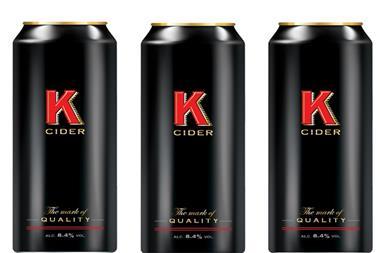
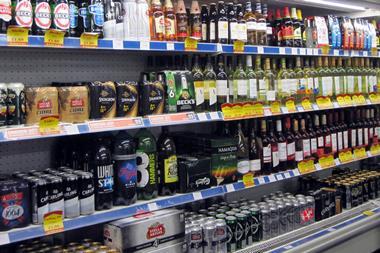
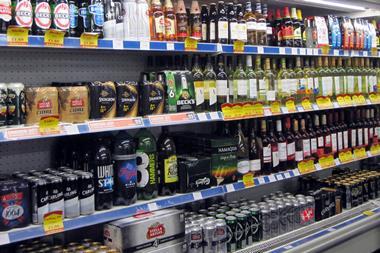
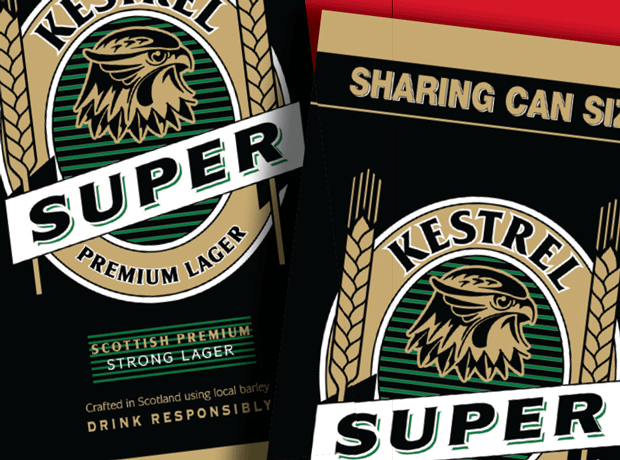




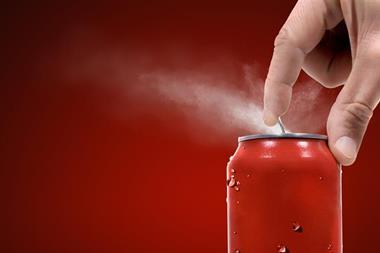
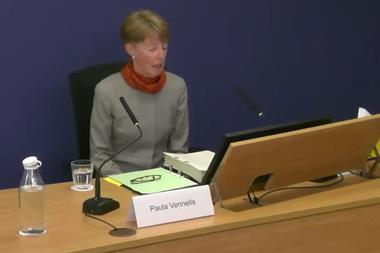
1 Readers' comment